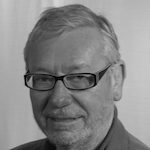
R. D. Hinshelwood is a fellow of the British Psychoanalytical Society and a fellow of the Royal College of Psychiatrists. He worked in the National Health Service for over thirty years and then as professor at the University of Essex. In the 1970s, he worked at the Marlborough Day Hospital as it became a therapeutic community, and in the 1990s, he was director of the Cassel Hospital. He has written widely on Kleinian psychoanalysis and on the application of psychoanalysis to understanding organisational and social dynamics.
R. D. Hinshelwood’s latest book, ‘Unconscious Politics: Alienation, Social Science and Psychoanalysis‘ brings together social science and psychoanalysis which are often held to be opposing schools of thought.
As we sit waiting for the curtain to rise on World War Three, the ugly overture of populism is sounding disharmonies in our ears. What the … what the hell?
Why is our affluent world that is built on reason and technology so deaf to all good sense? Why have we reduced ‘democracy’ to a weaponised litany? I sound just like a patient grasping at straws with a therapist to find out about those irrational symptoms of hysteria, of paranoia, of OCD. What might be the explanation of our planetary neurosis? Well, we could explain it as the workings of the irrational and the unknown – that is, the workings of the unconscious of mankind that bursts like a volcano with a tsunami of fear and hatred. Simple. We can understand that. Yet, not so simple, because no-one knows the unconscious of themselves let alone of the whole globe, and if we did, our multiple unconsciousnesses would deny all with the greatest fervent irrationality so as to sustain our un-knowing unconsciousness. What a fix for mankind! We are all of us in it together and yet have only the weakest means of rescuing ourselves.
Weak though it may be, my book tries to do what the best of doctors do. They do not treat symptoms, but they try to treat the causes of symptoms. In the book, I try to trace underlying provocations, and I emphasise the importance of alienation, the thirst for treating persons as depersonalised commodities. Feeding the gas-chambers at Auschwitz is vastly different from feeding consumers from supermarket shelves, and yet I pursue a pervading common factor, people are dealt with as impersonal, controllable entities. But not simply that.
causes of symptoms. In the book, I try to trace underlying provocations, and I emphasise the importance of alienation, the thirst for treating persons as depersonalised commodities. Feeding the gas-chambers at Auschwitz is vastly different from feeding consumers from supermarket shelves, and yet I pursue a pervading common factor, people are dealt with as impersonal, controllable entities. But not simply that.
I was faced with a dilemma; is it possible to write a psychoanalytic account of political problems without becoming political in the process? I don’t think that I avoided the danger entirely. And yet, perhaps a calm and rational view would only lead into the same alienating, dispassionate depersonalising. Would it? Nevertheless, it is important that we recognise that psychoanalysts and therapists can only talk with authority about those unconscious factors that interfere with reasonable thinking and debate. We cannot justify our own political commitments on the basis of psychoanalysis, just the interference of politics. The book needs to be read with that limitation in mind. But it needs to be read to open debate and find a way through our global problems.
R. D. Hinshelwood
Pre-order your copy of ‘Unconscious Politics: Alienation, Social Science and Psychoanalysis‘ now! Due to be published September 2024.

